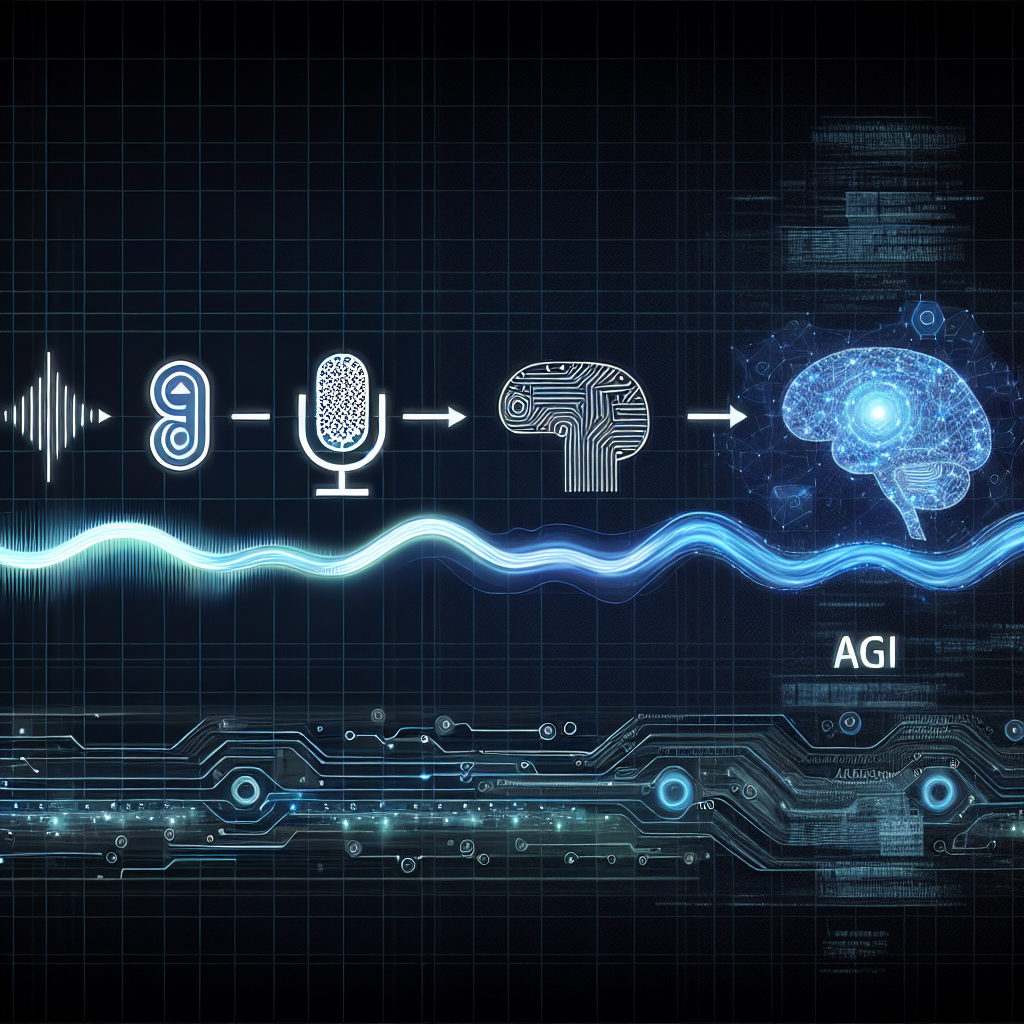From Siri to AGI: Exploring the Evolution of Artificial Intelligence
Artificial Intelligence (AI) is a rapidly evolving field that has the potential to revolutionize many aspects of human life. From virtual assistants like Siri to advanced systems that can outperform humans in complex tasks, AI has come a long way since its inception. In this article, we will explore the evolution of AI, from its early beginnings to the current state of the art, including the concept of Artificial General Intelligence (AGI) and its implications for the future.
The Early Days of AI
The idea of artificial intelligence dates back to the 1950s, when researchers began to explore the possibility of creating machines that could think and learn like humans. One of the first breakthroughs in AI came in 1956, when a group of scientists organized the Dartmouth Conference, which is considered the birth of AI as a field of study.
In the following decades, researchers made significant progress in developing AI systems that could perform simple tasks, such as playing chess or solving mathematical problems. These early AI systems were based on rule-based algorithms, which were limited in their ability to adapt to new situations or learn from experience.
The Rise of Machine Learning
In the 1980s and 1990s, a new approach to AI emerged, known as machine learning. Machine learning is a branch of AI that focuses on developing algorithms that can learn from data and improve their performance over time. This approach has led to significant advances in AI, enabling machines to perform tasks that were previously thought to be impossible for computers.
One of the key breakthroughs in machine learning was the development of neural networks, which are algorithms inspired by the way the human brain processes information. Neural networks are capable of learning complex patterns from data and making predictions based on that information. This technology has been used in a wide range of applications, from image and speech recognition to autonomous vehicles and medical diagnosis.
The Emergence of Siri and Virtual Assistants
In recent years, virtual assistants like Siri, Alexa, and Google Assistant have become increasingly popular, providing users with a convenient way to interact with their devices using natural language. These virtual assistants are powered by AI algorithms that can understand and respond to human speech, enabling users to perform a wide range of tasks, such as setting reminders, checking the weather, and sending messages.
Siri, which was introduced by Apple in 2011, was one of the first virtual assistants to gain widespread popularity. Since then, other tech companies have developed their own virtual assistants, each with its unique features and capabilities. These virtual assistants are constantly improving their performance through machine learning, allowing them to understand and respond to a wider range of user queries.
The Quest for Artificial General Intelligence
While virtual assistants like Siri are impressive in their ability to perform specific tasks, they are still far from achieving the level of intelligence and adaptability that humans possess. This has led researchers to pursue the development of Artificial General Intelligence (AGI), which refers to AI systems that can perform any intellectual task that a human can do.
AGI is considered the holy grail of AI research, as it has the potential to revolutionize many aspects of society, from healthcare and transportation to education and entertainment. However, achieving AGI is a daunting challenge, as it requires developing algorithms that can learn and adapt to a wide range of tasks and environments.
One of the key challenges in developing AGI is the need for algorithms that can generalize from limited data and learn from experience. While current AI systems excel at performing specific tasks, they struggle to adapt to new situations or learn from unforeseen events. Researchers are exploring new approaches to machine learning, such as reinforcement learning and unsupervised learning, to bridge this gap and move closer to AGI.
The Future of AI
As AI continues to evolve, it is likely to have a profound impact on society, transforming industries and reshaping the way we live and work. From autonomous vehicles and smart homes to personalized healthcare and virtual assistants, AI technologies are already changing the way we interact with the world around us.
However, the rapid pace of AI development also raises concerns about the ethical and societal implications of this technology. As AI systems become more powerful and autonomous, there are questions about how to ensure transparency, accountability, and fairness in their decision-making processes. Researchers and policymakers are grappling with these issues, exploring ways to regulate AI and harness its potential for the benefit of society.
FAQs
Q: What is the difference between AI and AGI?
A: AI refers to systems that can perform specific tasks using algorithms and data, while AGI refers to systems that can perform any intellectual task that a human can do. AGI is considered the next frontier in AI research, as it has the potential to revolutionize many aspects of society.
Q: How close are we to achieving AGI?
A: While significant progress has been made in AI research, achieving AGI remains a daunting challenge. Researchers are exploring new approaches to machine learning, such as reinforcement learning and unsupervised learning, to bridge the gap between current AI systems and AGI.
Q: What are the ethical implications of AI?
A: As AI technologies become more powerful and autonomous, there are concerns about the ethical and societal implications of this technology. Researchers and policymakers are exploring ways to regulate AI and ensure transparency, accountability, and fairness in its decision-making processes.
In conclusion, AI is a rapidly evolving field that has the potential to transform many aspects of human life. From virtual assistants like Siri to the concept of AGI, AI technologies are reshaping the way we interact with the world around us. As researchers continue to push the boundaries of AI, it is essential to consider the ethical and societal implications of this technology and ensure that it is used for the benefit of society.

